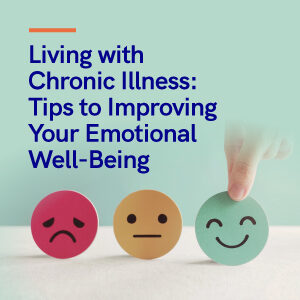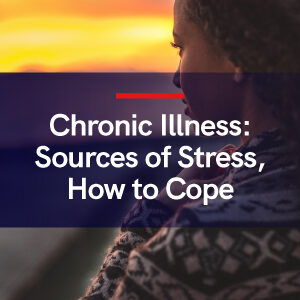What are placebo and nocebo effects? According to the Oxford Dictionary, the placebo effect is a beneficial effect produced by a placebo drug or treatment, which cannot be attributed to the properties of the placebo itself, and must, therefore, be due to the patient’s belief in that treatment. Most people have heard of the placebo effect. In contrast, few have heard of the nocebo effect – when negative thoughts negatively impact our health. Nocebo literally means “I shall harm” in Latin. Both of these effects are incredibly powerful. It’s important to understand these mechanisms to know how powerful your mind is and the way it influences health or disease.
A review in Medical News Today lists several studies in which the placebo effect produced results equal or almost equal to actual treatment. This includes in serious conditions such as Parkinson’s, IBS, and even in creating analgesic responses to pain.
Countless studies have shown the impact of the nocebo effect, but one of the most prominent cases is that of Sam Londe. In 1974, Mr. Londe was diagnosed with esophageal cancer with a prognosis of a few weeks to live. When he died a few weeks later, the autopsy revealed a complete absence of cancer in the esophagus. Turns out Mr. Londe didn’t have cancer at all, but everyone including Mr. Londe himself had believed he did-leaving us to think very seriously about the impact of belief. While this is just one man and an extreme case, there are plenty of studies proving the nocebo effect.
In the US, Parkinson’s patients who were told that their brain pacemakers (for deep brain stimulation) were to be turned off experienced dramatically more negative symptoms even though the pacemakers were left switched on.
Meanwhile, a study conducted in Japan showed the impact of the nocebo effect in real-time. 13 children had a severe allergy to a plant similar to poison ivy. They were blindfolded and one arm was rubbed with what they were told was a harmless leaf even though it was the one they were allergic to, and the other arm was rubbed with a harmless leaf while they were told it was the poisonous one. All of the subjects broke out in a rash on the arm that was rubbed with the harmless leaf and only two had a rash from the poisonous leaf.
According to BBC radio science presenter and former biomedical researcher Geoff Watts, “nocebo is not only more powerful than placebo, but it is likely to be more widespread and its implications are far more serious as it not only interferes with the existing treatments but it hinders the development of new drugs.”
Both the placebo and nocebo effects have powerful implications and need to be considered in the context of living with chronic illness and especially in the context of the current pandemic. Many people are afraid of their own bodies right now and jump to the worst thoughts at the first sign of COVID-19 related symptoms. Those of us living with illness are also very good at anticipating what might go wrong when we face stress or lose sleep. For example, we might think “wow after the last few nights without sleep, I’m probably going to get a migraine.” However, you probably don’t want to be sending your body that message. In order to stay healthy or recover quickly when you are having symptoms of dis-ease, it’s critical to send positive and healthy messages to your body and avoid anything that could lead to the nocebo effect.
Here are some tips to help you now and always!
Focus on Wellness
You need to trust your body and focus on its strength. If you are concerned about COVID-19, then use this approach to focus on the strength of your immune system. Two great ways to focus on wellness are to inundate your mind with stories of health and healing, and practice meditation to harness trust and gratitude for your body. Reflect on all the times your body has shown up for you, pulled through, and recovered. It’s crucial that your body hear this message to counteract current societal focus on illness. I also recommend reading or listening to patient stories like my own, watching the documentary Heal on Netflix, or picking up a book on the subject such as You Are the Placebo by Dr. Joe Dispenza.
Expect the Best
When you hear yourself anticipate a negative symptom or outcome, catch yourself and provide an alternative response. It can be as simple as responding to the example above, “wow after the last few nights without sleep I’m probably going to get a migraine,” with a statement such as “or not.” When you show up at the infusion center for treatment, expect that it is going to have an amazing impact for your body and already anticipate how good you will begin to feel afterward and in the coming days. Visualize it and feel it in your body like it’s real and happening right now.
Turn off the News
Media and news can often focus on negative stories. After all, it wouldn’t grab your attention if it was all wins and COVID-19 recovery stories. As a result, if you are listening to the news, you are activating the nocebo effect. If you do get any symptoms of COVID-19, it is more likely to manifest in the worst possible way if that’s the message (from the news) you gave your body about it. Turn it off. If you need to check protocols for social distancing etc. you can quickly google them and move on.
While it’s always important to be aware of placebo and nocebo effects, it is especially important to be mindful during this pandemic. Harness the power of the placebo to create excellent health outcomes for yourself and stay aware of how your self might be feeding nocebo so that you aren’t making anything worse. If you are experiencing a lot of anxiety and worry, it’s important to seek support from a mental health professional so that you can shift the messages your body is hearing.
While it is easy to feel helpless in the midst of a pandemic, these effects are proof that your mind is a powerful tool for managing your health. I hope this inspires you to learn more about placebo and nocebo effects and begin practicing the power of your own amazing mind!

